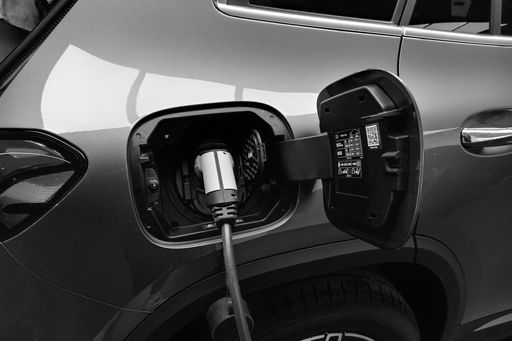China's Dominance in Electric Vehicles Presents a Dilemma to the West
China's electric vehicle industry has become a dominant force globally, creating a dilemma for Western countries. The West must navigate the challenges and opportunities posed by China's EV dominance.

The Rise of China's Electric Vehicle Industry
China has emerged as the global leader in electric vehicles (EVs), surpassing other countries in terms of production and sales. The Chinese government has heavily invested in promoting EV adoption and has implemented supportive policies, such as subsidies and incentives, to drive growth in the sector.
China's EV market is the largest in the world, accounting for nearly 50% of global EV sales. The country's dominance can be attributed to a combination of factors, including a strong manufacturing base, a large consumer market, and a commitment to reducing carbon emissions.
Chinese EV manufacturers, such as BYD, NIO, and Xpeng, have gained significant market share both domestically and internationally. These companies have been successful in producing high-quality EVs at competitive prices, making them attractive to consumers.
The Impact on the West
China's dominance in the EV industry presents a dilemma for Western countries. On one hand, the rise of China's EV market has led to increased competition for Western automakers. Companies like Tesla, which once dominated the EV market, are now facing stiff competition from Chinese manufacturers.
On the other hand, China's success in the EV sector also offers opportunities for collaboration and partnership. Western countries can learn from China's experience and expertise in EV manufacturing and technology. By embracing these opportunities, Western automakers can stay competitive in the global market and contribute to the growth of the EV industry.
However, there are also concerns about China's growing influence in the global EV market. Some Western countries worry about overreliance on Chinese EV technology and the potential for intellectual property theft. Balancing cooperation with China while safeguarding national interests is a challenge that Western countries must address.
Navigating the Challenges and Opportunities
To navigate the challenges and opportunities posed by China's EV dominance, Western countries need to take several actions. First, governments should develop supportive policies, such as tax incentives and charging infrastructure subsidies, to encourage domestic EV adoption and production.
Second, Western automakers should invest in research and development to enhance their own EV technology and manufacturing capabilities. This will not only help them compete with Chinese manufacturers but also drive innovation in the EV industry as a whole.
Lastly, international collaboration and cooperation are essential. Western countries should establish partnerships with Chinese companies and work together to set global standards for EV technology and safety. By fostering a collaborative environment, the West can ensure a level playing field and prevent any unfair trade practices.
In conclusion, China's dominance in the electric vehicle industry presents both challenges and opportunities for Western countries. By taking proactive measures and adopting a strategic approach, the West can navigate this dilemma and contribute to the continued growth and development of the EV sector.


